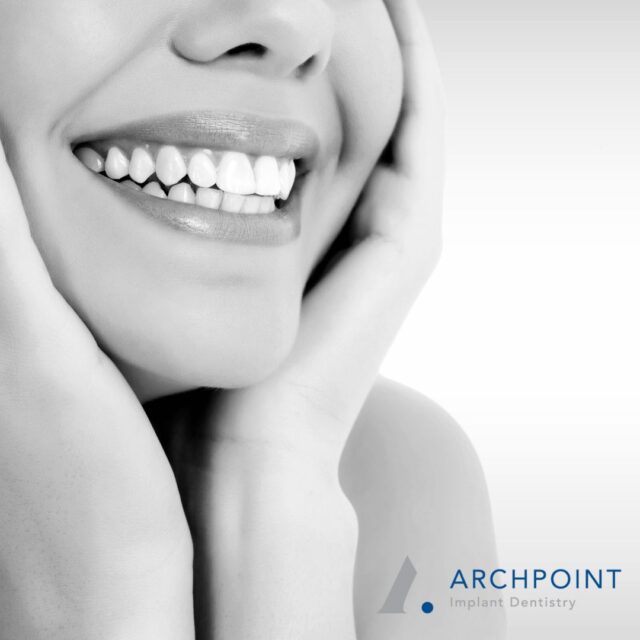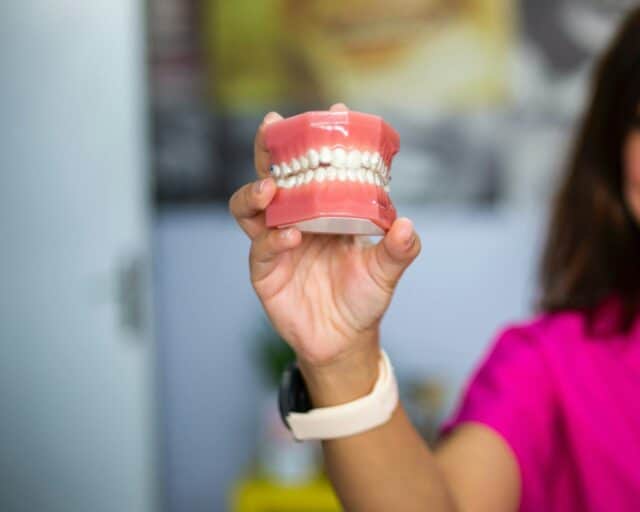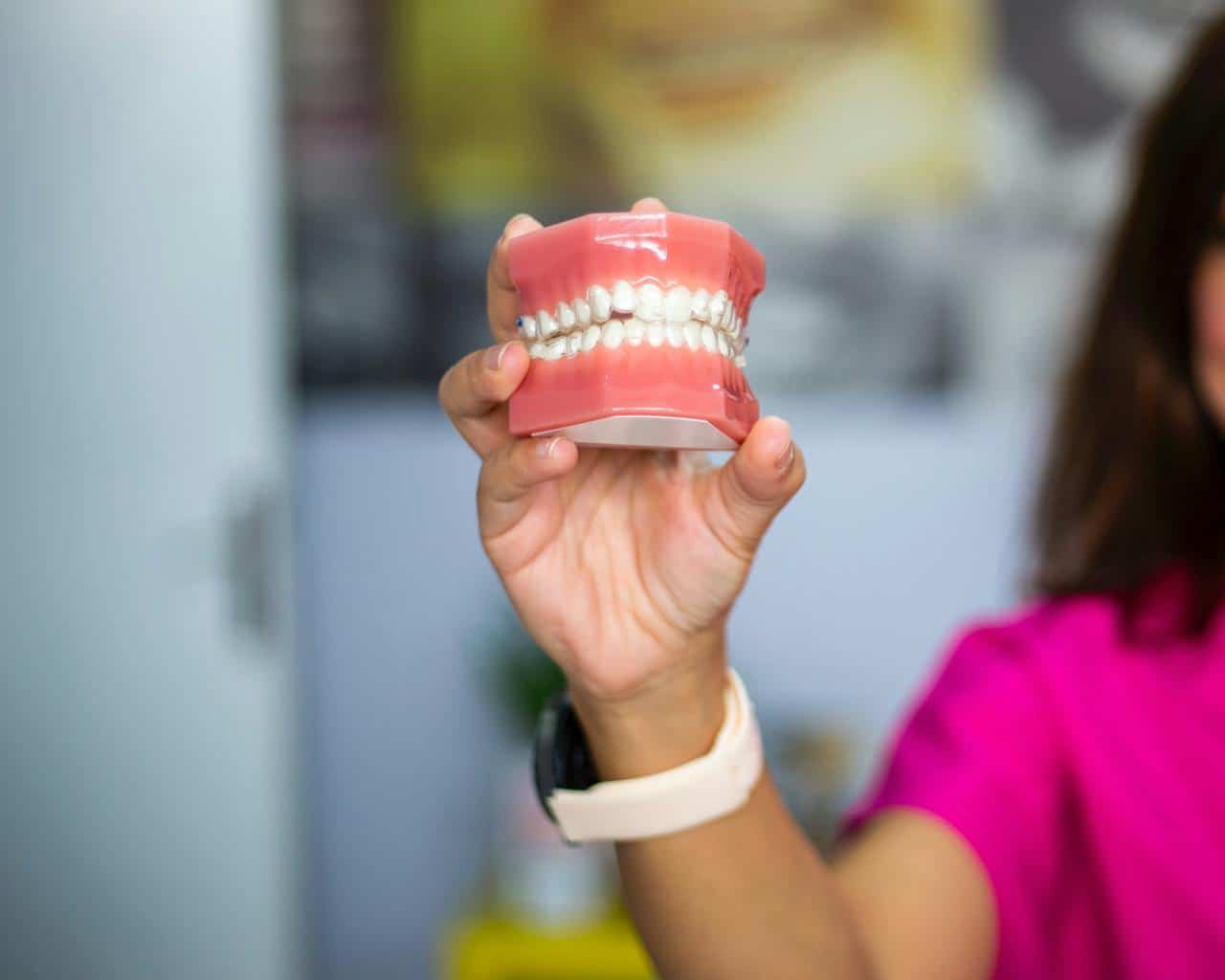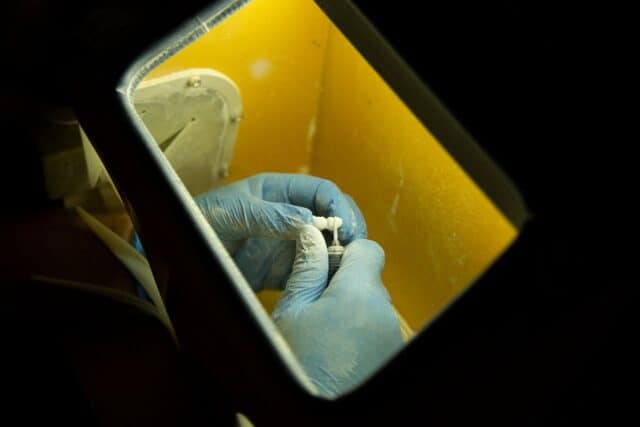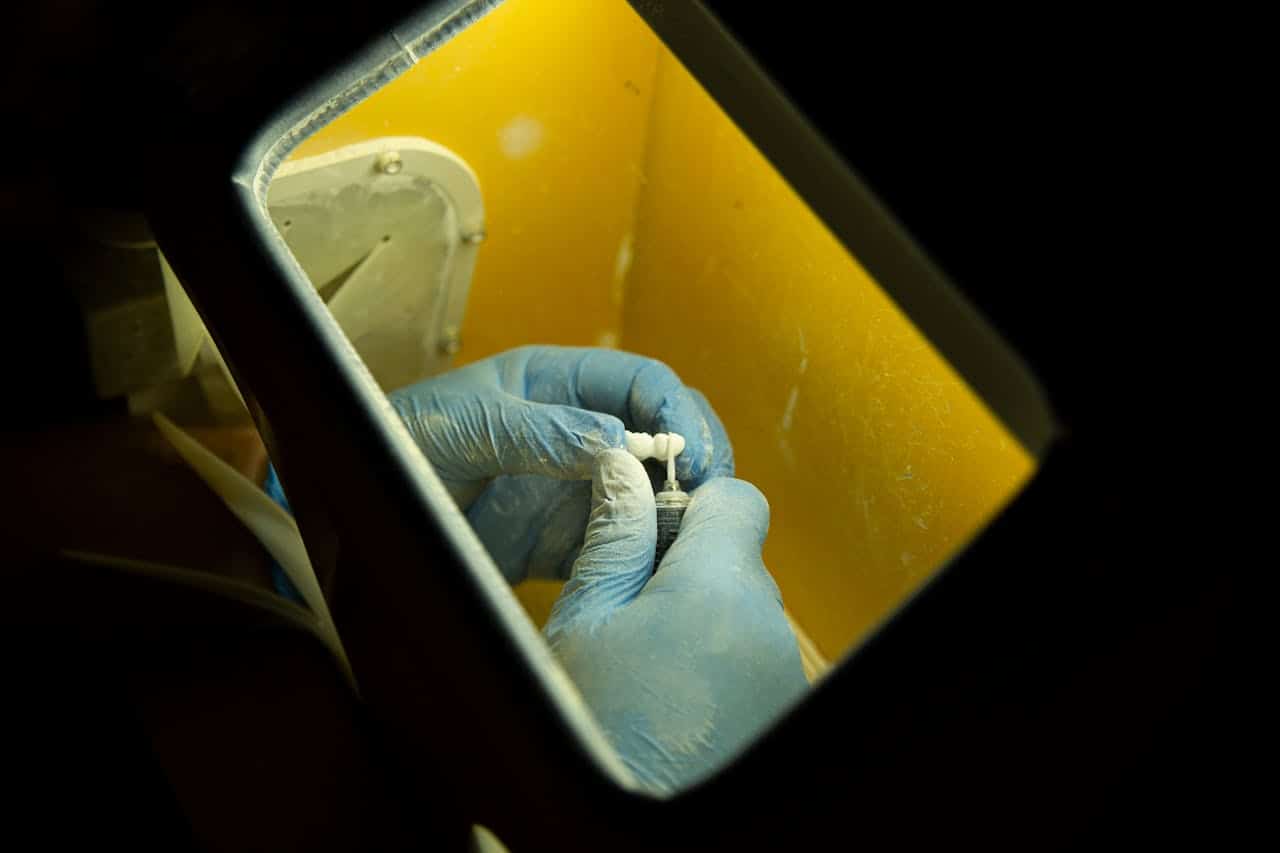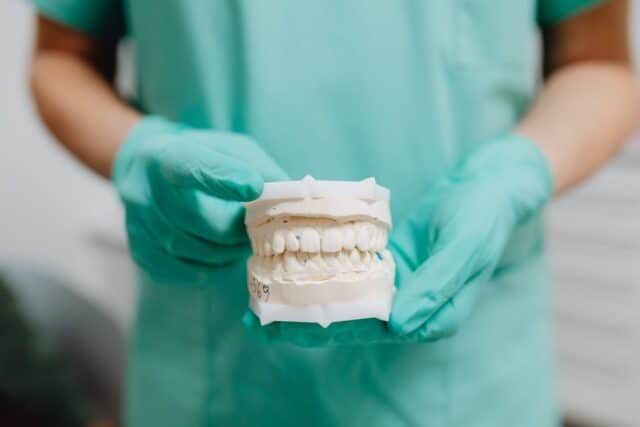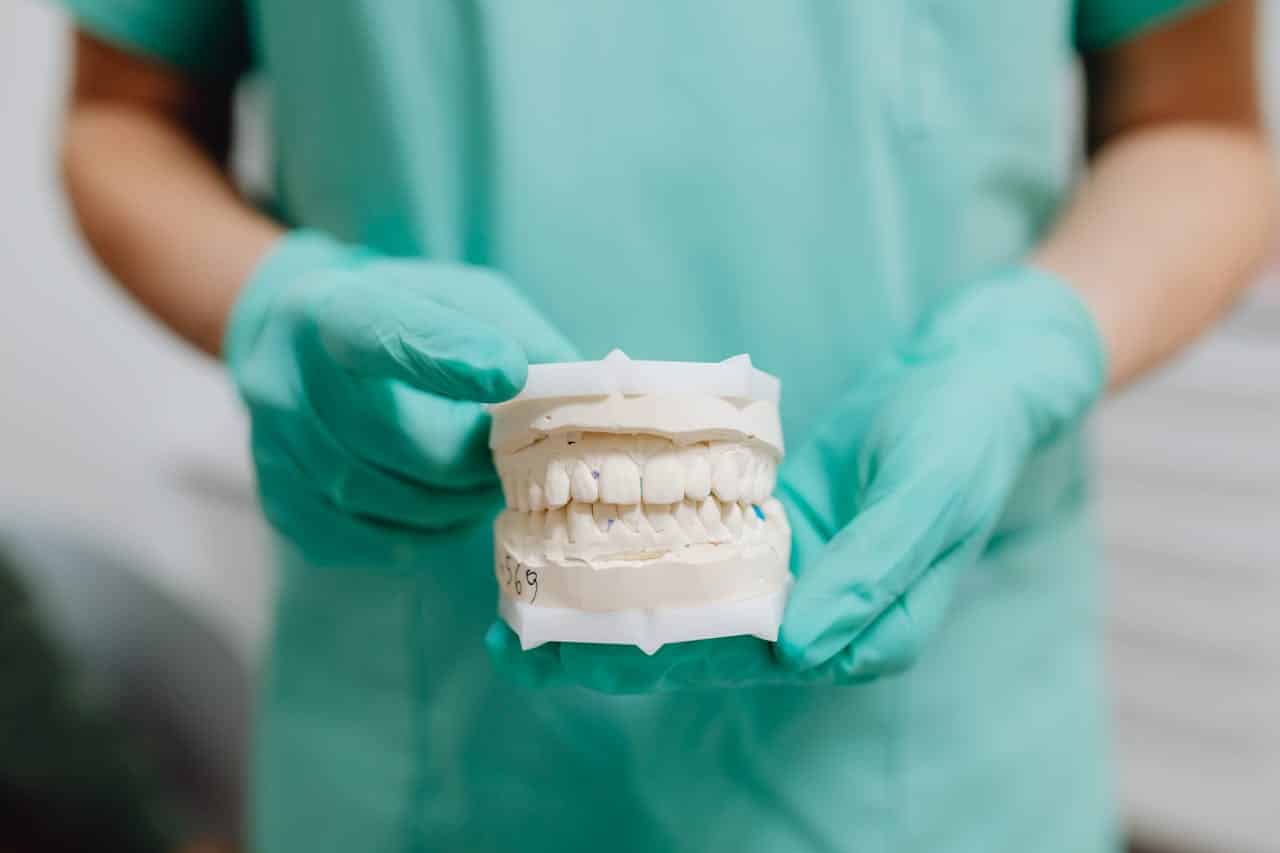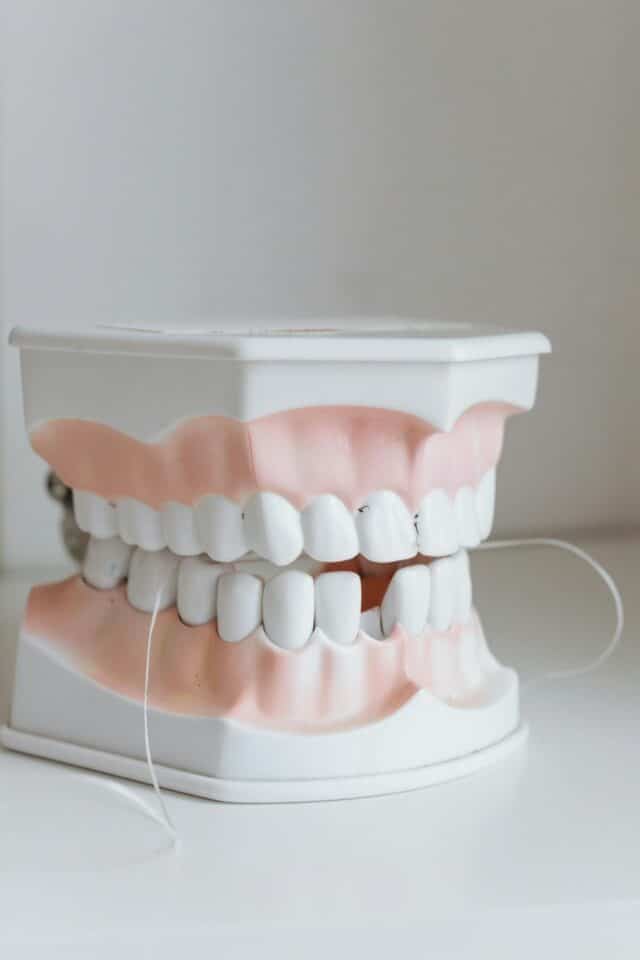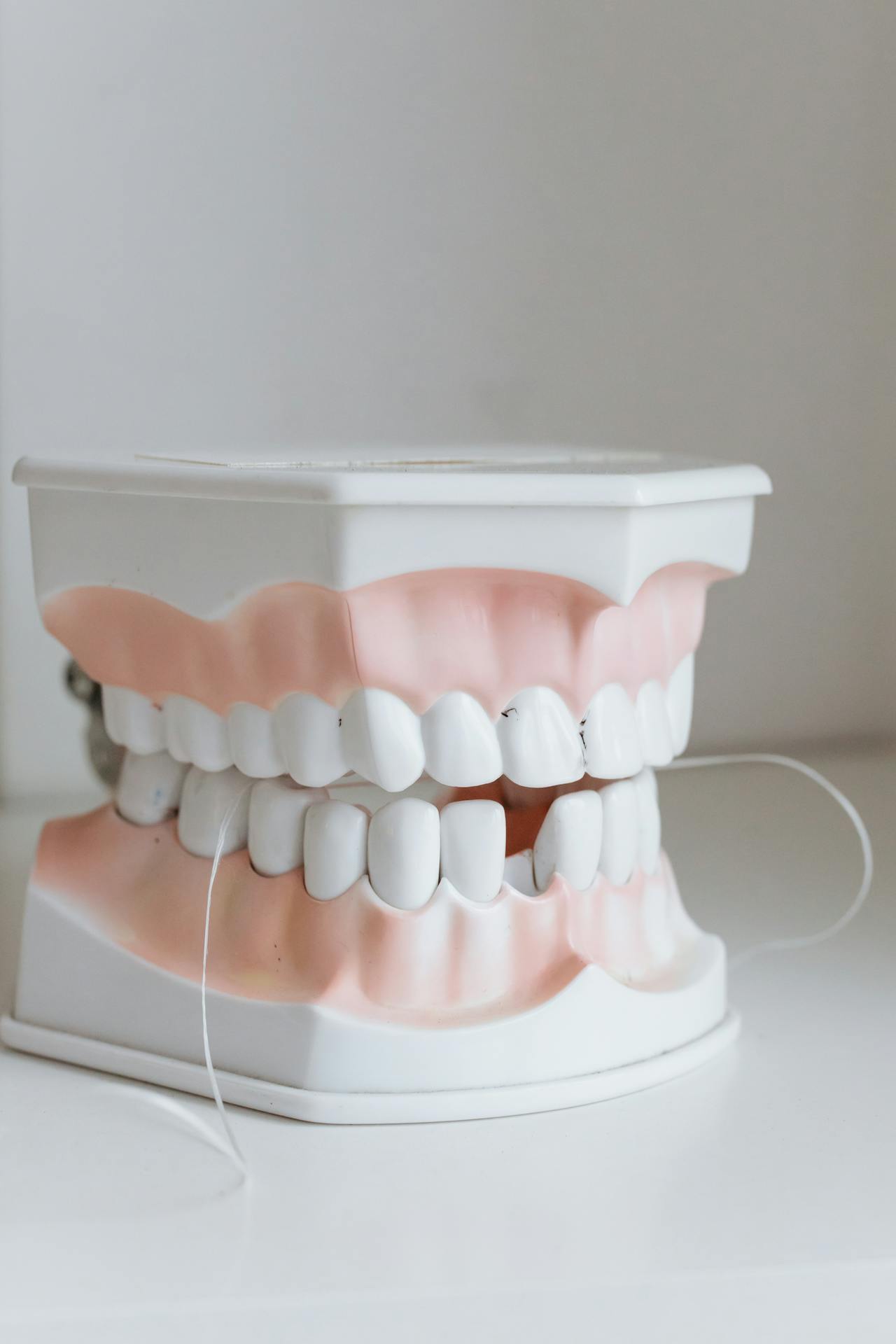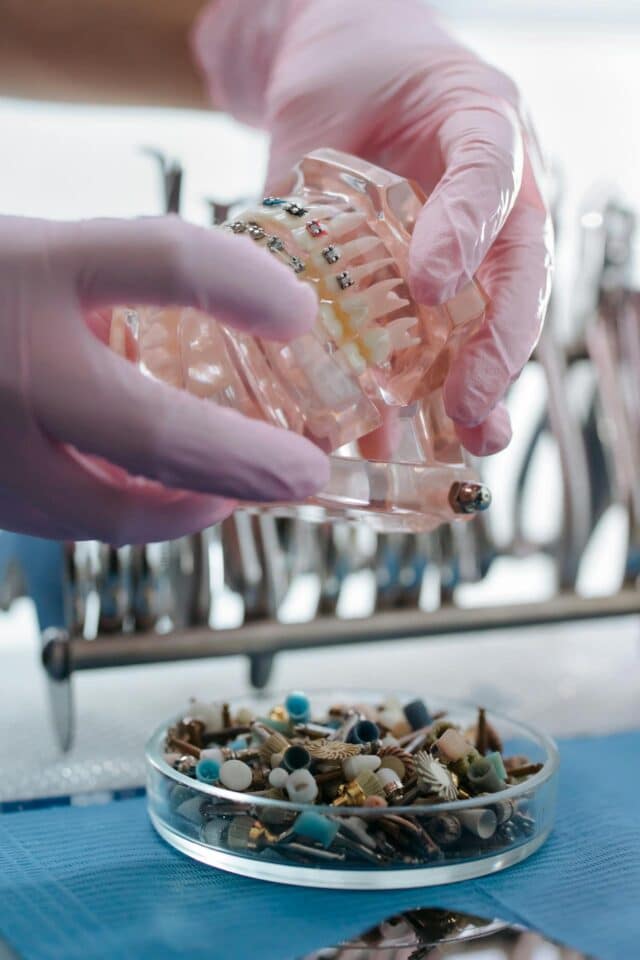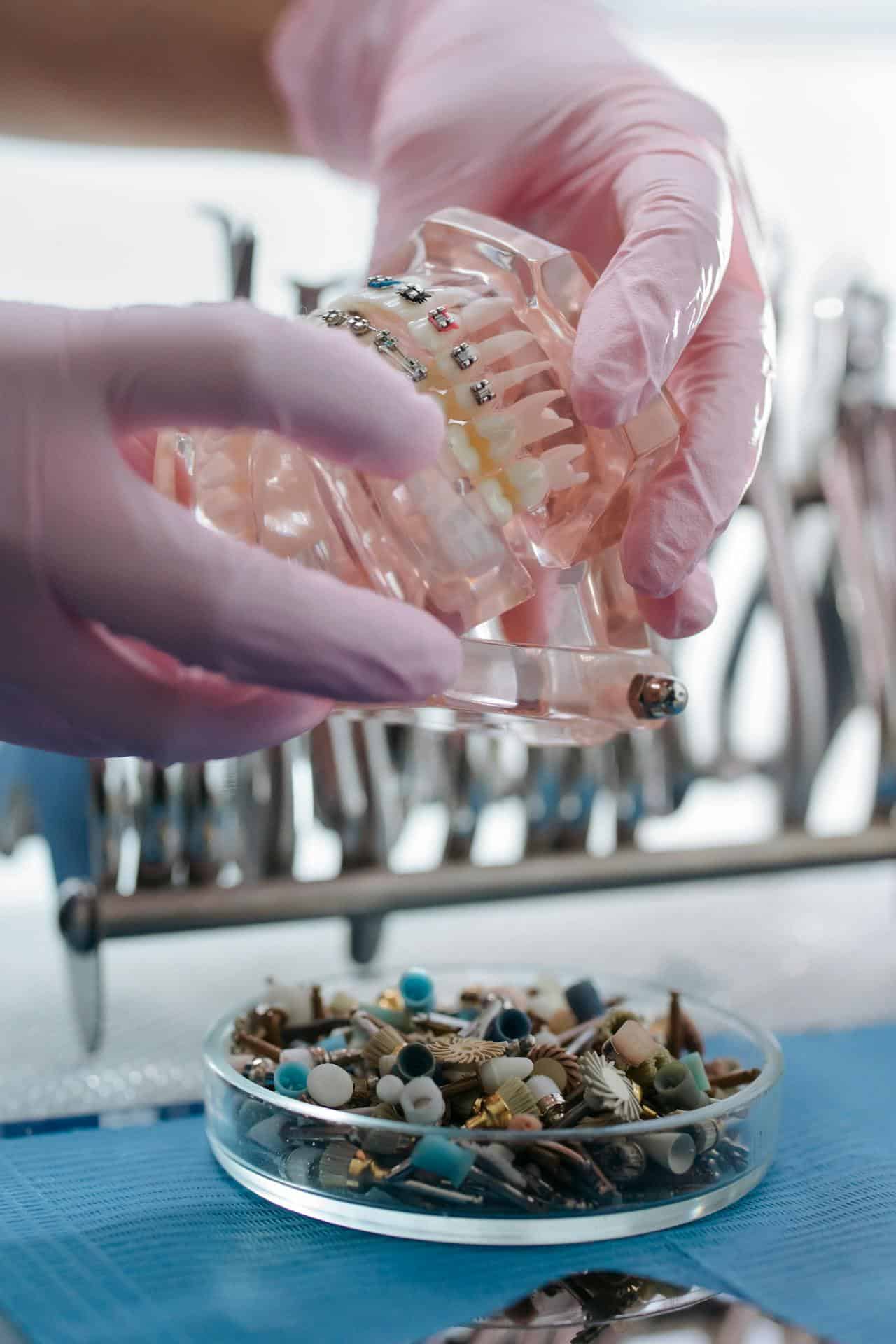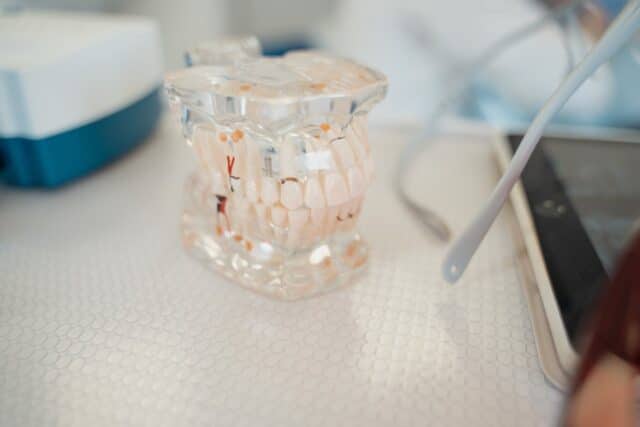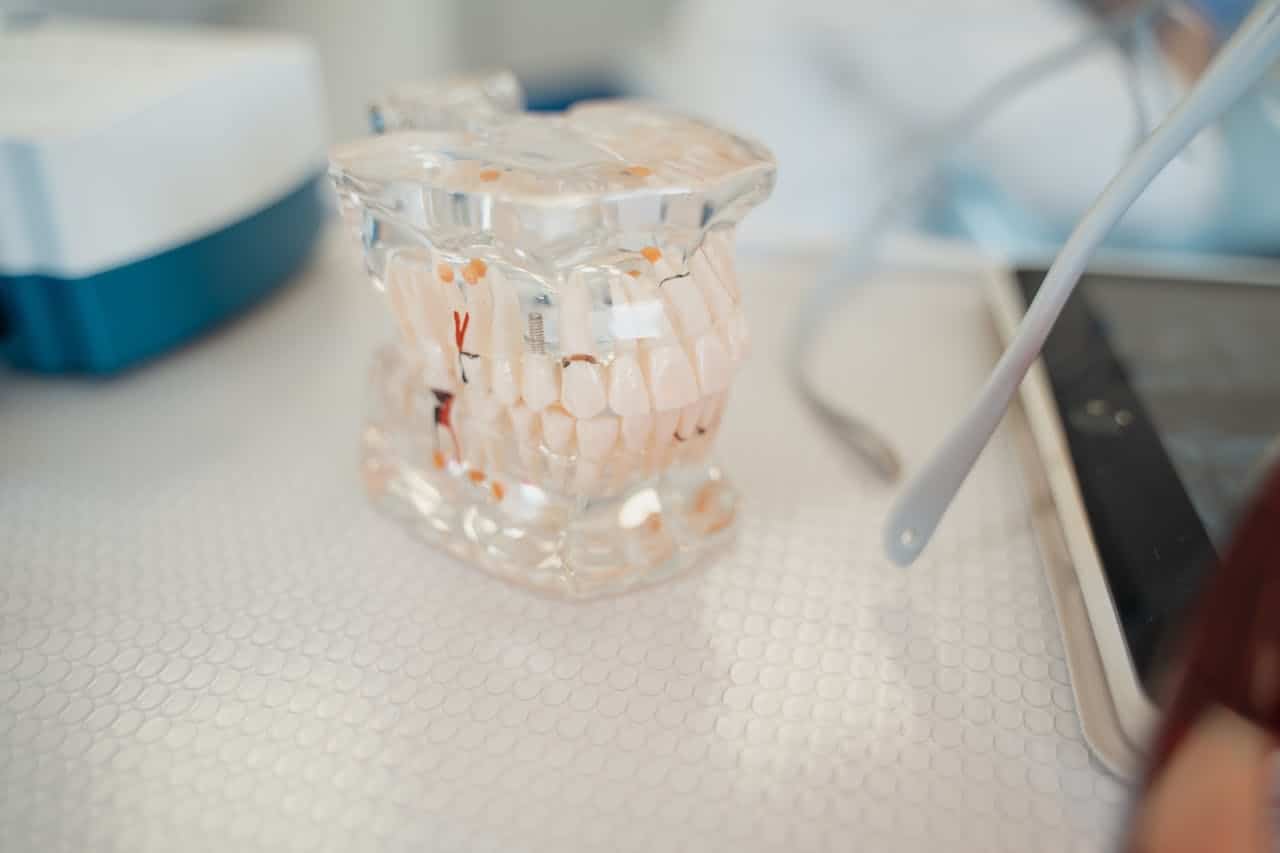Speaking requires precise coordination of the tongue, lips, and teeth. Tooth loss disrupts this balance, which can lead to challenges with clear articulation. As a result, everyday conversations can become difficult and frustrating. Words that once flowed effortlessly may now sound different, making social interactions uncomfortable.
Dentures restore this balance by replacing lost teeth and providing the necessary support for accurate pronunciation. Although, speaking with dentures may initially feel strange, with time and practice, smooth and confident communication can be regained.
This blog explains how dentures improve speech and communication by exploring the following topics:
- The Role of Teeth in Speech Production
- Common Speech Challenges After Getting Dentures
- How To Speak Clearly With Dentures
- Best Dentures for Speech Improvement
Learn how dentures and communication go hand in hand to improve everyday conversations.
- Slurred Speech: When dentures are first introduced, they may feel unfamiliar, which can lead to slightly slurred or garbled speech. This can also be exacerbated by poor fit or excess saliva production as your body adjusts, making it harder to enunciate words properly. As the body adjusts to the dentures, saliva production normalizes, and speech clarity improves.
- Lisping: This happens when airflow is altered, causing a whistling or hissing sound, particularly when pronouncing “s” and “sh” sounds. This issue arises when dentures are not perfectly positioned, preventing the tongue from making proper contact with the artificial teeth.
- Muffled Words: A poor fit affects tongue movement and disrupts the way sound resonates in the mouth. Words may sound unclear or lack the crisp articulation that natural teeth provide.
- Difficulty With Certain Sounds: Consonants like “s,” “t,” “d,” and “th” require precise tongue placement against the teeth. With missing teeth, the tongue adapts to an altered mouth structure, and when dentures are introduced, it must relearn proper positioning.
Overcoming denture speech challenges takes time, but the consistent effort makes noticeable improvements. The muscles of the mouth must adjust to the new oral structure, and the tongue must find its proper placement for clear articulation.
How To Speak Clearly With Dentures
Speaking with dentures involves training the mouth to adjust to its new structure. The tongue, lips, and cheeks must adapt to the artificial teeth, which can be challenging at first. This adjustment period varies for each person, but consistent practice helps the muscles relearn proper positioning for speech.
- Practice With Tongue Twisters
Challenging words that require precise articulation force the tongue and lips to coordinate with the dentures. Adjusting to dentures takes practice, but over time, tongue twisters improve overall clarity and fluency.
- Read Aloud
Seeing words on a page while speaking them out loud allows denture wearers to hear their pronunciation and recognize areas needing improvement. Dentures and communication are closely connected, and reading varied content introduces different speech patterns and helps refine articulation.
- Down Speech
Many new denture users tend to rush their words due to discomfort or unfamiliarity with the new structure in their mouth. However, speaking too quickly can lead to slurring or mumbling. Deliberate, slow speech allows the tongue and lips to form each word correctly, making communication more effective.
- Use Adhesive for Stability
Dentures that shift while speaking can cause pronunciation difficulties and a lack of confidence in conversations. A quality adhesive helps keep dentures in place. Stability allows the tongue to focus on articulation rather than adjusting for unexpected movement.
- Engage in Conversations
The more denture wearers talk, the faster they become comfortable with their new teeth. Adjusting to dentures involves practice, and engaging in discussions reinforces natural speech patterns while helping eliminate any hesitation. Mirror practice also helps individuals see how their mouth moves with dentures, making it easier to adjust and refine speech.
- Visit the Dentist
If speaking difficulties continue despite consistent practice, a dental professional can check for improper alignment, pressure points, or looseness affecting pronunciation. Regular checkups prevent long-term speech challenges and ensure dentures remain comfortable.
- Speech Therapy
While practice at home helps improve pronunciation, some individuals experience persistent speech challenges that require professional guidance. A speech therapist provides targeted exercises to refine articulation, helping denture wearers regain control over complex sounds.
Best Dentures for Speech Improvement
Choosing the right dentures makes a big difference in how easily words flow. Whether replacing a few teeth or an entire set, the proper set will help bring back natural articulation.
Complete Dentures
Complete dentures restore full oral function for individuals who have lost all their natural teeth. A complete set of artificial teeth allows the tongue to regain its natural movement and positioning, making it easier to produce clear sounds. Dentures and communication are closely connected, as well-designed complete dentures help prevent lisping and reduce pronunciation difficulties.
Partial Dentures
Partial dentures fill specific gaps while maintaining the alignment of natural teeth. Missing only a few teeth can still disrupt speech, particularly for sounds that require precise tongue-to-tooth contact. Partial dentures act as placeholders, preventing the tongue from slipping into gaps where teeth used to be.
Implant-Supported Dentures
Implant-supported dentures offer extra stability by anchoring to the jawbone, preventing movement during speech. Unlike traditional removable dentures, these remain fixed, eliminating concerns about slipping or shifting. Implant-supported dentures also reduce the need for adhesives, offering a long-term solution for those who struggle with loose-fitting appliances.
Custom-Fitted Dentures
Custom-fitted dentures provide the highest level of comfort and articulation support. A personalized fit ensures dentures conform to the unique shape of the user’s mouth. Customization improves alignment, minimizing speech obstacles and enhancing verbal clarity.
Restore Your Speech and Confidence With Archpoint Implant Dentistry
Speech problems after tooth loss can be frustrating, but adjusting to your new dentures requires patience. Over time, pronunciation becomes more natural, and any initial difficulties fade away.
Finding the right dentures starts with expert guidance. At Archpoint Implant Dentistry, specialists provide personalized solutions for comfort and functionality. Schedule an appointment today and take the first step toward dentures that fit perfectly and help you speak with ease.
Frequently Asked Questions
Will dentures always affect the way I speak?
Most speech changes with dentures are temporary. At first, your tongue and lips need time to adjust to the new shape in your mouth. Some words may sound different, and you might have a slight lisp. However, if dentures fit correctly, long-term issues are unlikely.
How long does it take to get used to speaking with dentures?
Most people adapt within a few weeks. Overcoming denture speech challenges takes time, but if speech issues persist beyond a month, a dentist can check for fit problems or necessary adjustments.
What if my dentures feel loose when talking?
Speech problems after tooth loss often arise when dentures do not fit securely. This could mean they need an adjustment or a reline. Denture adhesive can help with minor movement.
How can I tell if my dentures fit correctly for speech?
Well-fitted dentures should stay in place while you talk. If they shift, click, or cause discomfort, they may need an adjustment. A dentist can assess the fit and make necessary modifications.
Do upper and lower dentures affect speech differently?
Yes. Upper dentures cover the palate, which may initially slightly impact speech. Lower dentures, if loose, can shift when talking. Implant-supported dentures offer more stability if problems persist.

